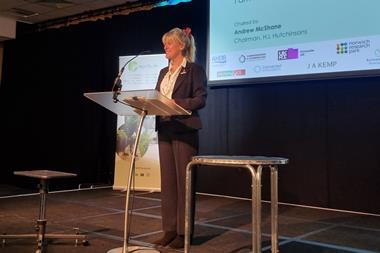
Independent research has found that the government’s controversial Inheritance Tax reforms largely protect family farms but could be “better targeted”.
A new report by the Centre for Analysis of Taxation (CenTax), out this week, stated the reform should do more to protect working farms.
The government’s IHT proposals, first laid out by Chancellor Rachel Reeves in her budget on 30 October, will see the full 100% relief from Inheritance Tax restricted to the first £1m of the value of agricultural and business property, from April 2026.
The report estimated that 30% of farm estates would be impacted by the reform, of which around 200 estates per year potentially comprised of family farms valued at less than £5m.
The analysis also found that landowners were less likely to be impacted by the reform than working farmers, representing 64% of all farm estates but 42% of impacted farm estates.
It also found that almost half of all impacted farm estates would see a tax increase of less than five percentage points, and those facing an increase larger than 15 percentage points were valued at over £7.5m.
Most impacted farm estates (86%) could pay their IHT bill out of non-farm assets, leaving around 70 farm estates per year that could not. Of these 40 farm estates would face a residual bill greater than 20% of the farm’s income if paid in 10-year annual instalments, CenTax claimed.
“Our analysis shows that the government’s reform largely protects family farms whilst limiting claims by the wealthiest estates,” said Dr Andy Summers, director of the Centre for Analysis of Taxation at CenTax and associate professor at London School of Economics & Political Science. “But the relief could be better targeted to reduce its use for tax planning and further extend protection for businesses, including farms.”
The researchers have suggested two options for better targeting the reform whilst raising at least as much revenue overall, including a ‘minimum share rule’ that would remove relief for passive investors in farmland and other business assets, funding an extension of 100% relief for farmers and other business owners to £5m per estate.
They alternatively recommended an ‘upper limit on relief’ that would cap relief at the first £10m of a claim, funding an increase in the allowance for 100% relief to £2m per estate.
The report has been welcomed by long-time critics of the tax the NFU.
“We welcome this detailed report by CenTax which recognises that working farms will be disproportionately affected by this tax,” said NFU president Tom Bradshaw. “This is not a fair and balanced approach to reform and does little to counter those who seek to shelter wealth from Inheritance Tax by simply investing in farmland.
“There are interesting adjustments within the report that appear to mitigate the impacts on the most vulnerable in our community and enable farms to invest in the future of food production with greater confidence,” he added.
He said it offered a “positive and timely opportunity ahead of the Finance Bill for fresh conversations”.



















No comments yet